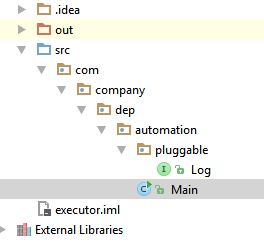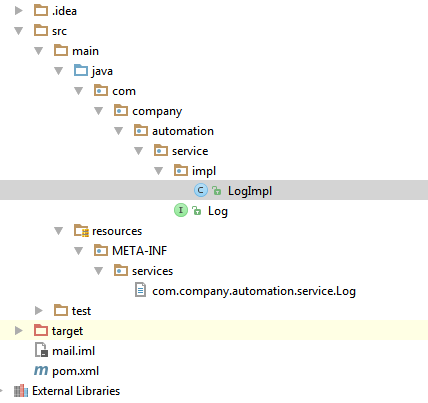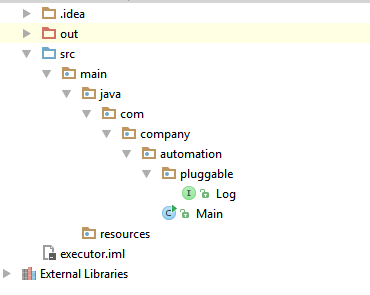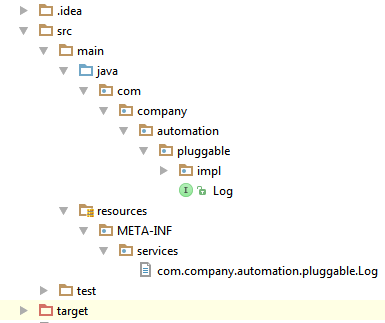Have been trying this since few days and can't get it working!
I am trying to build a pluggable java application where I can run it from command line and provide plugins (jars) in a separated folder. It seems the ServiceLoader would fit my requirement but I think I need a special case where the jars are not part of the classpath whereas they are stored in a different location, and for this reason I would need to use a ClassLoder pointing its url to this file system path.
One of the plugin i want to provide to the main application is a log jar with some custom features.
Here below the code I am using , but can't get to go into the for/loop .. it means that the ServiceLoader is not able to identify/match any class implementation :
final URL u = new File("C:\\data\\myLogJar-1.0-SNAPSHOT.jar").toURI().toURL();
ClassLoader ucl = new URLClassLoader(new URL[] {u});
ServiceLoader<Log> loader = ServiceLoader.load(Log.class, ucl);
for (Iterator<Log> iterator = loader.iterator(); iterator.hasNext(); ) {
System.out.println(iterator.next());
}
loader = ServiceLoader.load(Log.class,ucl);
for (final Log log : loader) {
log.info("Test log");
}
I wish you could help! Thanks a lot
==== adding project files :
Main pluggable application :
package com.company.dep.automation;
import com.company.dep.automation.pluggable.Log;
import java.io.File;
import java.net.MalformedURLException;
import java.net.URL;
import java.net.URLClassLoader;
import java.util.*;
public class Main {
private static ServiceLoader<Log> serviceLoader;
public static void main(String[] args) {
final URL u;
ClassLoader ucl = null;
try {
u = new File("C:\\data\\myLogJar-1.0-SNAPSHOT.jar").toURI().toURL();
ucl = new URLClassLoader(new URL[]{u});
} catch (MalformedURLException e1) {
e1.printStackTrace();
}
ServiceLoader<Log> loader = ServiceLoader.load(Log.class, ucl);
for (Iterator<Log> iterator = loader.iterator(); iterator.hasNext(); ) {
System.out.println(iterator.next());
}
loader = ServiceLoader.load(Log.class, ucl);
for (final Log log : loader) {
log.info("Test log");
}
}
}
the "Log" plugin
The interface Log
package com.company.automation.service;
public interface Log {
void trace(String message);
void debug(String message);
void info(String message);
void warn(String message);
void severe(String message);
void error(String message);
void fatal(String message);
}
Its implementation
package com.company.automation.service.impl;
import com.company.automation.service.Log;
public class LogImpl implements Log {
@Override
public void trace(String message) {
log("TRACE --> " + message);
}
@Override
public void debug(String message) {
log("DEBUG --> " + message);
}
@Override
public void info(String message) {
log("INFO --> " + message);
}
@Override
public void warn(String message) {
log("WARN --> " + message);
}
@Override
public void severe(String message) {
log("SEVERE --> " + message);
}
@Override
public void error(String message) {
log("ERROR --> " + message);
}
@Override
public void fatal(String message) {
log("FATAL --> " + message);
}
private void log(String message) {
System.out.println(message);
}
}
- Structure
=================
Adjusted the project structure as following but still doesnt work :




